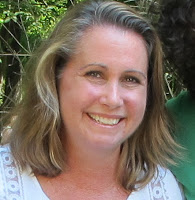The Montessori Method: An
Education For Creating Innovators
Kyle PearceJanuary 24,
2016
The Montessori Method may just
be Silicon Valley’s best kept secret. The connections between the innovators
who built Silicon Valley and Montessori education run deep.
I frequently hear people joking
around about the “PayPal Mafia” and their remarkable
influence in Silicon Valley (three former members of PayPal have become
billionaires: Elon Musk of Tesla Motors, early Facebook venture capitalist
Peter Thiel and Reid Hoffman of LinkedIn) but there may be a “Montessori Mafia” also, which Peter
Sims argues in his excellent book Little Bets: How Breakthrough Ideas Emerge from Small
Discoveries.
It turns out that a lot of Silicon
Valley’s brightest minds and most successful innovators have a Montessori
education in common. Here are just a few of the innovators that went through
an early Montessori education:
Larry Page and
Sergei Brin, the founders of Google were asked in a 2004 television interview with Barbara
Walters if having parents who were college professors was a major factor
behind their success. Instead, they credited their early Montessori education.
“We both went to Montessori school,” Mr. Page said, “and I think it was
part of that training of not following rules and orders, and being
self-motivated, questioning what’s going on in the world, doing things a little
bit differently.”
What’s most remarkable about their
success is that Google didn’t begin as a brilliant vision to make the world’s
information accessible for everyone to search, but as a project to improve
library searches at Stanford University. As Peter Sims points out referencing
Montessori: “most highly creative achievers don’t begin with brilliant
ideas, they discover them.” Page and Brin discovered that their initial
idea of improved library search had broader application and eventually unlocked
a revolutionary business model and an indispensable tool you probably use many
times each day.
Jeff Bezos, the
founder of Amazon went through
Montessori as child and he has made experimentation and discovery an integral
part of Amazon’s workplace culture. Bezos thanks his Montessori education for
his enthusiasm for experimentation. Talking about the risks of the experimental
innovation process he acknowledged that most of their projects fail, “But every
once in a while, you go down an alley and it opens up into this huge, broad
avenue.”
Will Wright, the
inventor of best-selling video games series “The Sims”, heaps similar praise on his Montessori education:
“Montessori taught me the joy of discovery, it’s all about learning on
your own terms, rather than a teacher explaining stuff to you. SimCity
comes right out of Montessori…”
Jimmy Wales, the
founder of Wikipedia went to a
Montessori-influenced school and like many of today’s tech elite he sends his
children to a Montessori school. As you can imagine, Montessori schools and
similarly structured Waldorf schools are very popular in Silicon Valley.
Even Thomas Edison,
the American inventor and in some ways
the Godfather of modern America’s innovation culture (I recommend watching this
biography The Wizard of Menlo Park) founded
his own Montessori School. He said, “I like the Montessori method. It
teaches through play. It makes learning a pleasure. It follows the natural
instincts of the human being . . . The present system casts the brain into a
mold. It does not encourage original thought or reasoning.”
Other prominent people who went
through Montessori education include singers Taylor Swift and Beyonce
Knowles, renowned celloist Yo-Yo Ma, legendary management guru Peter
Drucker, actor George Clooney, illusionist David Blaine, author Helen Keller,
techno-philosopher Jason Silva and English royals Prince William and Prince
Harry.
While Montessori education may not be
ideal for everyone, it provides a great philosophical blueprint for anyone to
follow to become more curious innovators. It teaches a process that is
fundamental to innovation: that we must take action and start
building things by taking small, achievable steps toward making our ideas
happen. When we are following a deep sense of self-directed experimentation and
inquisitiveness this leads us to create new things that may have value to
society.
A
link to the balance of the article follows: https://www.diygenius.com/the-montessori-method-creating-innovators/

























